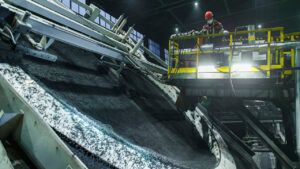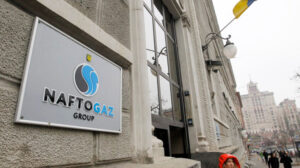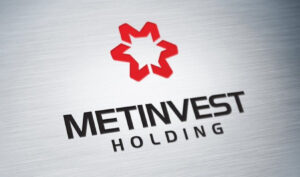
Tax revenues from Kyrgyzstan’s virtual asset market in 2025 exceeded the fees from the country’s largest commodity market Dordoi (Bishkek), according to data and comments published by regional media with reference to official statistics and industry participants.
According to the Financial Market Regulation and Supervision Service, in 2025, the budget from the market of virtual assets received almost 1.7 billion soms in taxes, with virtual asset service providers (exchangers and exchanges) providing 1.48 billion soms, and mining companies – 206.17 million soms.
The regulator also records a sharp increase in the scale of operations: the total turnover of virtual asset service providers in 2025 amounted to 2.735 trillion KGS with more than 2.12 million transactions, with over 94% of the turnover formed by exchange operations. The report indicates that 82 exchange operators and 5 crypto exchanges were registered in 2025, while mining activities, according to the finnadzor, have been effectively suspended since December 2025 and companies submit zero reporting.

In Cyprus from January 1, 2026, changes affecting the processing of real estate transactions and taxation on the sale of assets came into force, according to the explanations to the reform.
The key simplification for new transactions is the complete abolition of stamp duty (Stamp Duty) for sale and purchase agreements signed from January 1, 2026. Previously the levy was calculated on the value of the transaction and required separate procedures, it is now zero-rated for new contracts.
Lifetime capital gains tax deductions (CGT) have also been revised, which may reduce the taxable base for real estate sales by individuals. In particular, the limits of the personal deduction, the exemption for agricultural land and the deduction for a principal residence (subject to fulfillment of conditions and proof of documentation) have been increased. These parameters apply to contracts entered into starting in 2026.
A separate block of the reform relates to transactions involving shares in real estate companies. The threshold at which the sale of shares/shares qualifies as a real estate transaction for CGT purposes has been lowered – this increases the tax due diligence requirements for purchases of corporate shells with properties on the balance sheet.
In addition, exemptions for real estate exchange and barter schemes in development (e.g., when land is transferred to a developer in exchange for finished objects) have been extended, and control over compliance with tax procedures has been strengthened: if the parties are in arrears, transfer of ownership rights may be blocked, and Tax Clearance checks have become tougher.
According to the Department of Land and Cadastre of Cyprus (DLS), in 2025, foreign buyers (excluding Cypriot citizens) registered 7,255 sale contracts (sale contracts), of which 4,809 – buyers from outside the EU; the number of transferred objects (transfers/sales) amounted to 4,195 (2,234 – buyers outside the EU).
The top nationalities that most often appear in the “top ten” are: Russians, British, Israelis, Greeks, Romanians, Chinese, Ukrainians, Germans, Americans and Lebanese (Australians and Bulgarians are also found in Nicosia).

The Central, Ingulets, and Northern mining and processing plants (M&P plants) of the Metinvest mining and metallurgical group, transformed into the United Mining and Processing Plant, paid UAH 5.2 billion in taxes in 2025, which is 8.8% less than in 2024 (UAH 5.7 billion).
According to the company’s press release on Thursday, the main source of budget revenue in 2025 was subsoil use fees, which amounted to UAH 2.4 billion.
A significant portion of the United Mining and Processing Plant’s contributions came from a single social contribution, which amounted to almost UAH 756 million. Personal income tax amounted to UAH 646 million for the year. Environmental tax and land fees also contributed to the state and local treasuries.
“We continue to be a pillar of Ukraine’s economy despite all the challenges facing the mining industry. Today, Metinvest’s mining and processing plants remain among the largest taxpayers. These funds help to strengthen the country’s defense capabilities and support the social sector, which is extremely important during armed aggression. We are changing our approaches, learning to work in extremely difficult conditions, and consistently investing all our efforts in a peaceful future for Ukraine,” said Igor Tonev, CEO of OGZK.
As reported, the group’s mining companies increased their tax payments 2.6 times to UAH 5.7 billion in 2024.
Earlier, Metinvest CFO Yulia Dankova, explaining the group’s financial performance, noted that the dynamics were not positive mainly due to the shutdown of production facilities, in particular in Pokrovsk. The Ingulets Mining and Processing Plant is also idle.
Metinvest is a vertically integrated group of mining and metallurgical enterprises. Its enterprises are located in Ukraine – in the Donetsk, Luhansk, Zaporizhzhia, and Dnipropetrovsk regions – as well as in the European Union, the United Kingdom, and the United States.
The main shareholders of the holding are SCM Group (71.24%) and Smart Holding (23.76%). Metinvest Holding LLC is the managing company of the Metinvest Group.

The fixed Internet provider market paid 48.5% more taxes to the state budget in January-November 2025 than in 2024—UAH 6.1 billion, according to Danylo Getmantsev, head of the parliamentary committee on finance, tax, and customs policy, in a Telegram post on Friday.
According to his data, personal income tax (PIT) and military tax (MT) increased by 61% to UAH 1.9 billion, income tax by 25.8% to UAH 0.6 billion, and value added tax (VAT) amounted to UAH 3.27 billion, which is 58.1% more than last year.
The VAT payment rate also increased by 1.1% to 9.71%.
The average salary in the fixed Internet sector increased by 26.9% and amounted to UAH 17,900 in October 2025, Getmantsev noted.
“At the same time, some operators have not stopped fragmentation, and the work of the BEB to stop crimes in this area and bring those responsible to justice has not yet become systematic,” said the head of the parliamentary committee on finance, tax, and customs policy.
According to the National Commission for the Regulation of Electronic Communications and Postal Services (NCCEC), revenues in the fixed Internet market grew by 3% in the first half of 2025, to UAH 12.1 billion, average revenue per user (ARPU) increased by 3.5% to UAH 237.8, and the number of lines decreased by 0.5% to 8.4 million. There were 2.5 million lines in rural areas, which is 7.1% more, and fixed Internet access increased to 17,000 settlements (excluding TOT).

Naftogaz Group companies paid UAH 44.4 billion in taxes in the first six months of 2025, of which UAH 40.7 billion went to the state budget, according to Serhiy Koretsky, chairman of the board of Naftogaz of Ukraine.
“In the first half of 2025, Naftogaz Group companies paid UAH 44.4 billion in taxes to budgets of all levels, which is almost 7% of all tax revenues to the country’s budget,” he said in a Facebook post on Friday.
He noted that of this amount, UAH 40.7 billion went to the state budget and another UAH 3.7 billion to local budgets.
“Supporting the financial stability of the state is an integral part of our responsibility as a company operating in a strategic sector of the economy,” Koretsky commented.
As reported, the consolidated revenue of the Naftogaz Group in 2024 increased by 22.0% to UAH 298.75 billion, and net profit by 63.9% to UAH 37.91 billion.

Zaporizhia enterprises of the mining and metallurgical group Metinvest – Zaporizhstal, Zaporizhogneupor, Zaporizhkox, and Zaporizhzhya Foundry and Mechanical Plant (ZLMP) – increased their transfers to budgets of all levels by 20% in January-June this year compared to the same period last year, totaling almost UAH 1.7 billion in taxes and fees.
According to a press release issued by the group on Wednesday, Metinvest Group companies also remain among the largest taxpayers in Zaporizhia. Tax revenues to local budgets for the first half of 2025 amounted to over UAH 543 million, which is 10% higher than in the first six months of 2024.
In the structure of taxes and fees for this period, the largest in terms of volume were single income tax and single social contribution payments. It should be noted that in April 2025, Metinvest raised salaries for employees of production and service enterprises, including in Zaporizhia, by up to 20%.
A significant share of deductions also falls on environmental and land taxes, as well as military levies.
Taking into account associated companies and joint ventures, Metinvest Group paid UAH 9.3 billion in taxes and fees to budgets of all levels in Ukraine in the first half of 2025.
Zaporizhstal is a joint venture of the Metinvest Group, whose main shareholders are System Capital Management (71.24%) and Smart Steel Limited (23.76%). Metinvest Holding LLC is the managing company of the Metinvest Group.